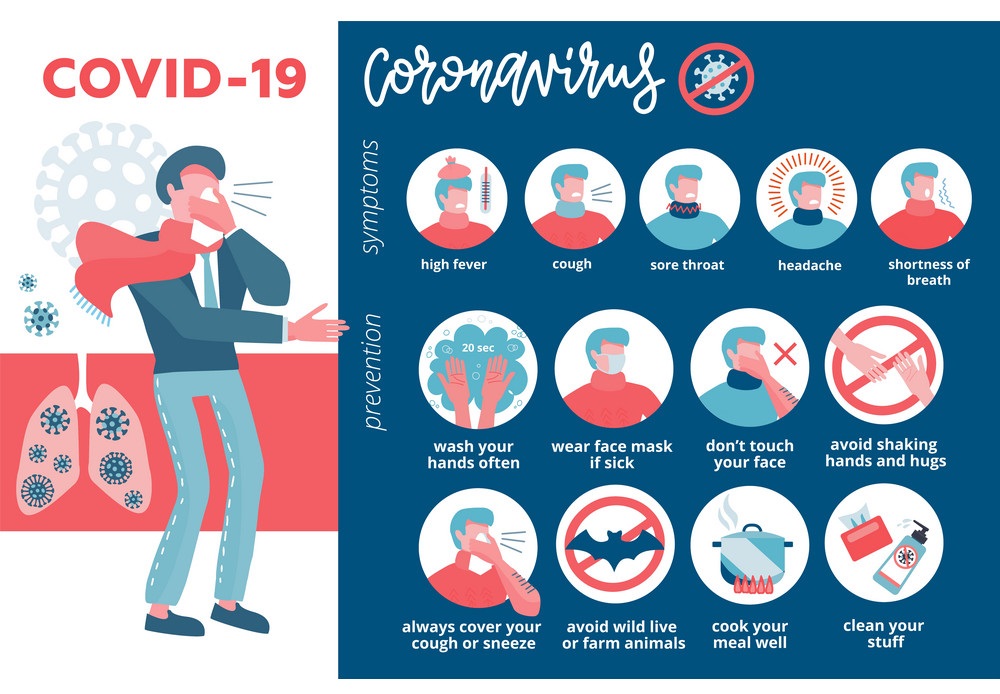Generally, coronavirus can cause more severe symptoms in people with weakened immune systems, older people, and those with long-term conditions like diabetes, cancer, and chronic lung disease. Some groups of people are considered to be at extremely high risk of severe illness with coronavirus. These people should strictly follow physical distancing and hygiene measures.
The symptoms of COVID-19 may resemble those of the common cold or flu. At the moment, people who experience such symptoms should act as if they have COVID-19.
It starts with a fever. That’s the most common symptom among patients who get the new coronavirus that has swept across China.
They will need to take specific steps to monitor their health and prevent spreading SARS-CoV-2 to others.
If a person develops any symptoms of COVID-19, they should follow the steps below to stay safe and help protect others from the virus.
First steps
Once a person begins to suspect that they may have COVID-19, they should:
- Self-isolate: Self-isolating means staying at home and staying away from other family members to avoid spreading the virus. Ideally, people who have symptoms of COVID-19 should remain in one room and use a separate bathroom from other members of the household.
- Seek medical help if needed: A person should contact a doctor by phone to report their symptoms and seek further advice. They should not show up at a doctor’s office without prior approval from the facility. People should call emergency services if their symptoms are severe or include breathing difficulties.
Practice self-care
At present, there is no specific treatment for COVID-19. However, the following at-home self-care measures can help alleviate symptoms and prevent complications:
- drinking plenty of fluids to stay hydrated
- eating a healthful diet to help the body fight the infection
- getting plenty of rest to aid recovery
- taking medications to ease a cough
- using acetaminophen to lower a fever and alleviate aches and pains
It is important to monitor any symptoms and to take action if they begin to get worse.
If a person begins to develop breathing difficulties, they should call a doctor or hospital for guidance. A person should call emergency services if their breathing difficulties are severe or get worse.

